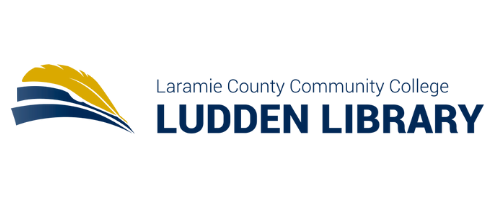Secret sharers : the intimate rivalries of modernism and psychoanalysis
(Book)
Author
Published
New York : Fordham University Press, 2023.
Edition
First edition.
Physical Description
202 pages ; 23 cm
Status
Laramie County Community College - Albany Campus - Main Collection
PN56.P92 S65 2023
1 available
PN56.P92 S65 2023
1 available
Summary
Loading Description...
Also in this Series
Checking series information...
Copies
| Location | Call Number | Status |
|---|---|---|
| Laramie County Community College - Albany Campus - Main Collection | PN56.P92 S65 2023 | On Shelf |
Subjects
Library of Congress Subjects
Auden, W. H. -- (Wystan Hugh), -- 1907-1973 -- Criticism and interpretation.
Lawrence, D. H. -- (David Herbert), -- 1885-1930 -- Criticism and interpretation.
Literary criticism.
Literature, Modern -- 20th century -- History and criticism.
Modernism (Literature) -- 20th century -- History and criticism.
Nabokov, Vladimir Vladimirovich, -- 1899-1977 -- Criticism and interpretation.
Psychoanalysis in literature.
Woolf, Virginia, -- 1882-1941 -- Criticism and interpretation.
Lawrence, D. H. -- (David Herbert), -- 1885-1930 -- Criticism and interpretation.
Literary criticism.
Literature, Modern -- 20th century -- History and criticism.
Modernism (Literature) -- 20th century -- History and criticism.
Nabokov, Vladimir Vladimirovich, -- 1899-1977 -- Criticism and interpretation.
Psychoanalysis in literature.
Woolf, Virginia, -- 1882-1941 -- Criticism and interpretation.
More Details
Published
New York : Fordham University Press, 2023.
Format
Book
Edition
First edition.
Language
English
Notes
Bibliography
Includes bibliographical references (pages 159-189) and index.
Summary
Secret Sharers traces a genealogy of secret sharing between literary modernism and psychoanalysis, focusing on the productive entanglements and intense competitive rivalries that helped shape Anglo-American modernism as a field. As Jennifer Spitzer reveals, such rivalries played out in explicit criticism, inventive misreadings, and revisions of Freudian forms--from D. H. Lawrence's re-descriptions of the unconscious to Vladimir Nabokov's parodies of the psychoanalytic case study. While some modernists engaged directly with Freud and Freudian psychoanalysis with unmistakable rivalry and critique, others wrestled in more complex ways with Freud's legacy. The key protagonists of this study--D. H. Lawrence, Virginia Woolf, W. H. Auden, and Vladimir Nabokov--are noteworthy for the way they engaged with, popularized, and revised the terms of Freudian psychoanalysis, while also struggling with it as an encroaching discourse. Modernists read psychoanalysis, misread psychoanalysis, and sometimes refused to read it altogether, while expressing anxiety about being read by psychoanalysis--subjecting themselves and their art to psychoanalytic interpretations. As analysts, such as Freud, Ernest Jones, and Alfred Kuttner, turned to literature and art to illustrate psychoanalytic theories, modernists sought to counter such reductive narratives by envisioning competing formulations of the relationship between literature and psychic life. Modernists often expressed ambivalence about the probing, symptomatic style of psychoanalytic interpretation and responded with a re-doubling of arguments for aesthetic autonomy, formal self-consciousness, and amateurism. Secret Sharers reveals how modernists transformed the hermeneutic and diagnostic priorities of psychoanalysis into novel aesthetic strategies and distinctive modes of epistemological and critical engagement. In reassessing the historical and intellectual legacies of modernism, this book suggests that modernist responses to psychoanalytic criticism anticipate more recent critical debates about the value of "symptomatic" reading and the "hermeneutics of suspicion."--Provided by publisher.
Biographical or Historical Data
Jennifer Spitzer is Associate Professor in the Department of Literatures in English at Ithaca College. Her work has appeared or is forthcoming in Modernism/Modernity, the Journal of Modern Literature, Studies in the Novel, Modern Language Quarterly, the New York Times, the Los Angeles Review of Books, Avidly, and other venues.
Reviews from GoodReads
Loading GoodReads Reviews.
Citations
APA Citation, 7th Edition (style guide)
Spitzer, J. (2023). Secret sharers: the intimate rivalries of modernism and psychoanalysis (First edition.). Fordham University Press.
Chicago / Turabian - Author Date Citation, 17th Edition (style guide)Spitzer, Jennifer. 2023. Secret Sharers: The Intimate Rivalries of Modernism and Psychoanalysis. Fordham University Press.
Chicago / Turabian - Humanities (Notes and Bibliography) Citation, 17th Edition (style guide)Spitzer, Jennifer. Secret Sharers: The Intimate Rivalries of Modernism and Psychoanalysis Fordham University Press, 2023.
MLA Citation, 9th Edition (style guide)Spitzer, Jennifer. Secret Sharers: The Intimate Rivalries of Modernism and Psychoanalysis First edition., Fordham University Press, 2023.
Note! Citations contain only title, author, edition, publisher, and year published. Citations should be used as a guideline and should be double checked for accuracy. Citation formats are based on standards as of August 2021.
